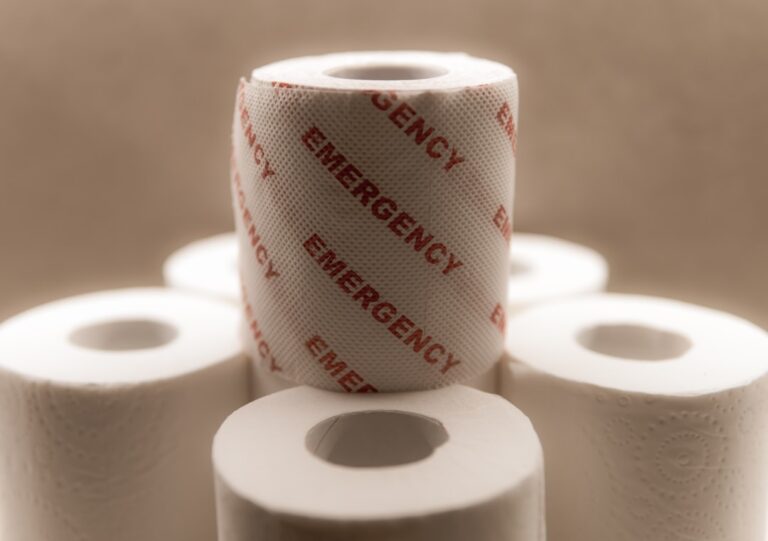
Sleep hygiene refers to a collection of practices and habits that are conducive to sleeping well on a regular basis. The importance of sleep hygiene cannot be overstated, as it plays a crucial role in maintaining overall health and well-being. Poor sleep hygiene can lead to a myriad of issues, including insomnia, anxiety, and even chronic health conditions such as obesity and cardiovascular disease.
Understanding the principles of sleep hygiene is essential for anyone looking to improve their sleep quality and, by extension, their quality of life. The concept of sleep hygiene encompasses various factors that influence sleep quality, including environmental conditions, daily routines, and lifestyle choices. By adopting good sleep hygiene practices, individuals can create an optimal environment for rest and recovery.
This article will delve into several key aspects of sleep hygiene, providing practical tips and insights that can help anyone achieve a more restful night’s sleep.
Creating a Sleep-Friendly Environment
The environment in which one sleeps plays a pivotal role in determining the quality of that sleep. A sleep-friendly environment is characterized by factors such as darkness, quietness, and a comfortable temperature. For instance, light exposure can significantly disrupt the body’s natural circadian rhythms, making it difficult to fall asleep or stay asleep.
To combat this, individuals should consider using blackout curtains or eye masks to block out any intrusive light sources. Additionally, minimizing noise through the use of earplugs or white noise machines can create a more serene atmosphere conducive to sleep. Temperature is another critical element in creating an ideal sleep environment.
The human body naturally cools down during sleep, so a cooler room—typically between 60 to 67 degrees Fahrenheit—is often recommended for optimal rest. Bedding materials also play a significant role; breathable fabrics such as cotton or linen can help regulate body temperature throughout the night. Furthermore, the choice of mattress and pillows should not be overlooked, as they provide essential support and comfort that can greatly affect sleep quality.
Investing in a good-quality mattress that suits one’s sleeping position can lead to significant improvements in overall sleep experience.
Establishing a Consistent Sleep Schedule

Establishing a consistent sleep schedule is one of the most effective strategies for improving sleep hygiene. The human body thrives on routine, and maintaining a regular sleep-wake cycle helps regulate the body’s internal clock, known as the circadian rhythm. This rhythm influences various physiological processes, including hormone release and body temperature, all of which are crucial for achieving restorative sleep.
By going to bed and waking up at the same time every day—even on weekends—individuals can reinforce their body’s natural rhythms and enhance their ability to fall asleep and wake up feeling refreshed. In addition to consistency in timing, the duration of sleep is equally important. Most adults require between seven to nine hours of sleep per night for optimal functioning.
However, individual needs may vary based on factors such as age, lifestyle, and overall health. Keeping track of one’s sleep patterns through a journal or mobile app can provide valuable insights into personal sleep needs and help identify any irregularities that may need addressing. Over time, adhering to a consistent schedule can lead to improved sleep quality and greater daytime alertness.
Limiting Stimulants and Electronic Devices Before Bed
| Metrics | Before Limiting | After Limiting |
|---|---|---|
| Time to Fall Asleep | 30 minutes | 15 minutes |
| Quality of Sleep | Fair | Good |
| Number of Nighttime Awakenings | 3 | 1 |
| Feeling Rested in the Morning | No | Yes |
The consumption of stimulants such as caffeine and nicotine can significantly hinder one’s ability to fall asleep. Caffeine, found in coffee, tea, chocolate, and many soft drinks, is a well-known stimulant that can remain in the body for several hours after consumption. As such, it is advisable to limit caffeine intake in the afternoon and evening to avoid interference with nighttime rest.
Similarly, nicotine from cigarettes or vaping products can disrupt sleep patterns and lead to increased wakefulness during the night. In addition to stimulants, the use of electronic devices before bedtime poses another challenge to achieving quality sleep. The blue light emitted by screens—whether from smartphones, tablets, or computers—can suppress melatonin production, the hormone responsible for regulating sleep-wake cycles.
To mitigate this effect, individuals should aim to disconnect from electronic devices at least an hour before bedtime. Engaging in alternative activities such as reading a physical book or practicing mindfulness can help signal to the body that it is time to wind down and prepare for rest.
Practicing Relaxation Techniques
Incorporating relaxation techniques into one’s nightly routine can significantly enhance the ability to fall asleep and improve overall sleep quality. Techniques such as deep breathing exercises, progressive muscle relaxation, and meditation have been shown to reduce stress and anxiety levels, which are common barriers to restful sleep. For example, deep breathing exercises involve inhaling deeply through the nose, holding the breath for a few seconds, and then exhaling slowly through the mouth.
This practice not only calms the mind but also helps lower heart rate and blood pressure. Meditation is another powerful tool for promoting relaxation before bed. Mindfulness meditation encourages individuals to focus on the present moment without judgment, allowing them to let go of racing thoughts that may interfere with sleep.
Guided meditation apps or recordings can provide structured sessions that are particularly helpful for beginners. By dedicating time each evening to these relaxation techniques, individuals can create a calming pre-sleep ritual that signals their body it is time to transition into rest.
Exercising Regularly for Better Sleep

Regular physical activity has been consistently linked to improved sleep quality. Engaging in exercise helps regulate various bodily functions, including hormone levels and metabolism, which can contribute to better sleep patterns. Aerobic exercises such as running, swimming, or cycling are particularly effective at promoting deeper sleep stages.
However, it is essential to consider the timing of exercise; while morning or early afternoon workouts can energize the body and promote alertness throughout the day, exercising too close to bedtime may have the opposite effect by increasing heart rate and adrenaline levels. Incorporating strength training into one’s fitness routine can also be beneficial for sleep hygiene. Resistance exercises not only build muscle but also improve overall physical health and well-being.
A balanced approach that includes both aerobic and strength training exercises can lead to optimal results in terms of sleep quality. Moreover, engaging in outdoor activities during daylight hours exposes individuals to natural light, which helps regulate circadian rhythms and further enhances sleep quality.
Avoiding Heavy Meals and Alcohol Before Bed
The timing and content of meals consumed before bedtime can significantly impact sleep quality. Heavy or rich foods can lead to discomfort and indigestion during the night, making it difficult to fall asleep or stay asleep. It is generally advisable to avoid large meals within two to three hours of bedtime.
Instead, opting for lighter snacks—such as yogurt or a small portion of fruit—can satisfy hunger without causing digestive issues. Alcohol consumption is another factor that warrants attention when discussing sleep hygiene. While many people believe that alcohol helps them fall asleep faster, it actually disrupts the natural sleep cycle and reduces overall sleep quality.
Alcohol may initially induce drowsiness but often leads to fragmented sleep later in the night due to its effects on REM (rapid eye movement) sleep—the stage associated with restorative processes in the brain. To promote better sleep hygiene, individuals should consider limiting alcohol intake in the hours leading up to bedtime.
Seeking Professional Help for Persistent Sleep Issues
Despite implementing various strategies for improving sleep hygiene, some individuals may still struggle with persistent sleep issues such as insomnia or other sleep disorders. In such cases, seeking professional help is crucial for identifying underlying causes and developing effective treatment plans. Healthcare providers may recommend cognitive-behavioral therapy for insomnia (CBT-I), which has been shown to be highly effective in addressing chronic sleep problems by changing negative thought patterns related to sleep.
Additionally, medical professionals may conduct sleep studies or assessments to diagnose specific conditions such as obstructive sleep apnea or restless leg syndrome. These conditions often require specialized treatment approaches that go beyond general sleep hygiene practices. By consulting with healthcare providers who specialize in sleep medicine, individuals can gain access to tailored interventions that address their unique challenges and ultimately lead to improved sleep quality over time.
In summary, understanding and implementing effective sleep hygiene practices is essential for achieving restful nights and enhancing overall well-being. From creating an optimal sleeping environment to establishing consistent routines and seeking professional help when necessary, individuals have numerous tools at their disposal for improving their sleep quality. By prioritizing these practices in daily life, one can pave the way for healthier sleeping habits that contribute positively to physical health and mental clarity.
FAQs
What are sleep hygiene practices?
Sleep hygiene practices are a set of habits and behaviors that promote good sleep quality and overall sleep health. These practices include maintaining a consistent sleep schedule, creating a comfortable sleep environment, and adopting relaxation techniques before bedtime.
Why are sleep hygiene practices important?
Sleep hygiene practices are important because they can help improve the quality and duration of sleep. By incorporating these practices into your daily routine, you can reduce the risk of sleep disorders, such as insomnia, and improve overall well-being.
What are some effective sleep hygiene practices?
Some effective sleep hygiene practices include:
– Establishing a regular sleep schedule
– Creating a comfortable sleep environment
– Limiting exposure to screens before bedtime
– Avoiding caffeine and heavy meals close to bedtime
– Engaging in relaxation techniques, such as meditation or deep breathing exercises
How can sleep hygiene practices improve sleep quality?
Sleep hygiene practices can improve sleep quality by promoting a consistent sleep-wake cycle, reducing disruptions during sleep, and creating a relaxing bedtime routine. By incorporating these practices, individuals may experience better sleep quality and feel more rested upon waking.
Are there any scientific studies supporting the effectiveness of sleep hygiene practices?
Yes, there are numerous scientific studies that support the effectiveness of sleep hygiene practices in improving sleep quality. Research has shown that maintaining a regular sleep schedule, creating a comfortable sleep environment, and practicing relaxation techniques can positively impact sleep quality and overall well-being.





